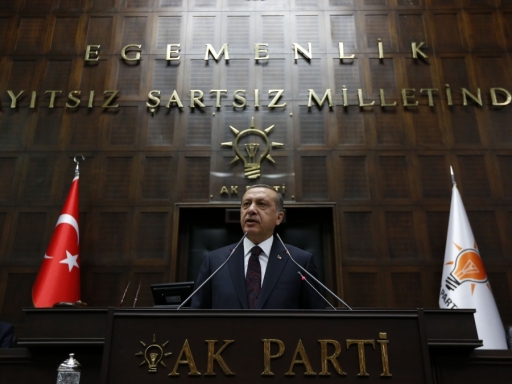On the 23rd April 2014, Turkey’s Prime Minister offered his “condolences” to Armenians who had family members that died during what the Prime Minister described as “the events of 1915”.
Prime Minister Erdoan made the most conciliatory remarks ever heard from Ankara about the transportation and deaths of thousands of Armenians who were killed under the rule of the Ottoman Empire.
Mr. Erdogan fell short of offering an apology and maintained Turkey’s (as the successor state of the Ottoman Empire) official stance that no genocide of Armenians took place.
As Ottoman and Russian forces clashed on the eastern fringes of the Ottoman Empire during the First World War, some Armenians supported the Russians. As a result, Armenians were transported away from the frontline by Ottoman forces, with many dying in the process. Estimates of Armenian deaths from the period of 1915-23 vary from 500,000 – 1,500,000.
The Turkish Government maintains that whilst Armenians were killed during “relocation”, there was no concerted attempt to wipe them out.
Yerevan insists that the Armenian population under Ottoman rule was “massacred” in a deliberate attempt to annihilate the Armenian people, partly in an effort to stop them from siding with Russia during the First World War. As such, Yerevan states that the deaths of these Armenians constitutes genocide.
It remains a highly emotive issue, which still affect Turkish- Armenia diplomatic relations today, as well as Turkey’s relations with other nations which recognise “the events of 1915” as genocide.
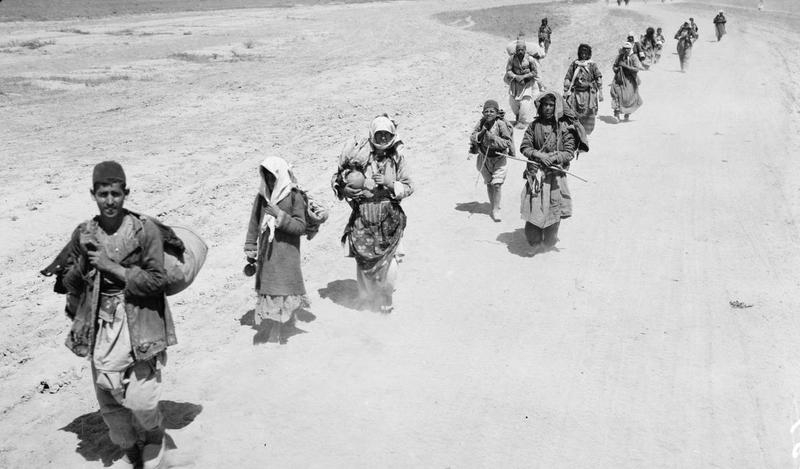 ‘Armenians who have escaped from the Turkish starvation zone approaching the British lines for protection’, courtesy of the Imperial War Museum, © IWM, Q 24744
‘Armenians who have escaped from the Turkish starvation zone approaching the British lines for protection’, courtesy of the Imperial War Museum, © IWM, Q 24744
“Our shared pain”
In a statement published in nine languages on the Turkish Prime Minister’s website, Mr. Erdoan described the 24th April (Genocide Remembrance Day in Armenia) as providing “a valuable opportunity to share our opinions freely on a historical matter”.
The 24th April 2015 will mark 100 years since the start of the mass deportations of Armenians by Ottoman forces.
Whilst describing the “incidents” of the First World War as “our shared pain”, the Prime Minister asserted that it was important to recognise the suffering of all Ottoman citizens during the period “without discriminating as to religion or ethnicity” or by constructing “hierarchies of pain”.
Mr. Erdoan repeated Turkey’s previous call for a joint historical commission of academics to be established to study the events of 1915, which has been rejected by Yerevan.
The Prime Minister acknowledged that as a result of Turkey’s culture of “democracy and modernity”, debate would continue, but that “using the events of 1915 as an excuse for hostility against Turkey and [turning] this issue into a matter of political conflict is inadmissible”.
“Monstrous crime”
Yerevan immediately rejected the Turkish Prime Minister’s statement, with the President of Armenia, Serzh Sargsyan, accusing Ankara of an “utter denial” of the truth.
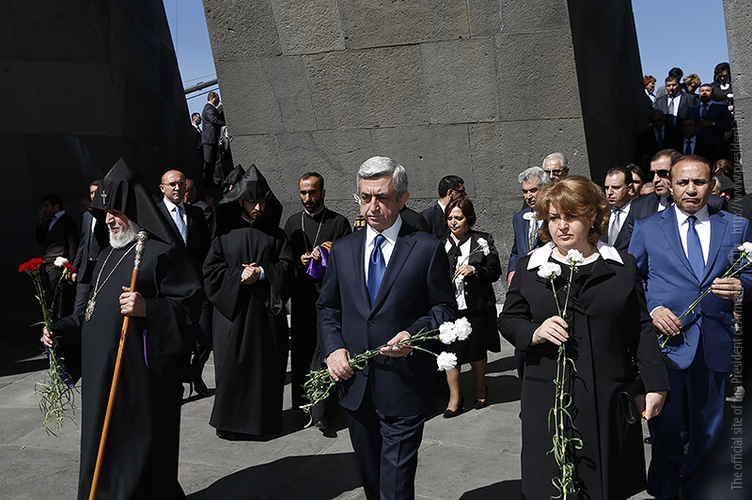 Armenian President at this year’s Genocide Memorial Service, courtesy of the President of Armenia’s Office
Armenian President at this year’s Genocide Memorial Service, courtesy of the President of Armenia’s Office
The President said that from 1915-23 Armenians “were killed simply because they were Armenians”.
“The crime [was] designed minutely and in advance [and] pursued a clear goal: to take possession of the home country, the property and the millennium-old heritage by exterminating the native people living there. By this they committed a monstrous crime seeking to once and forever annihilate Armenians as a political factor”.
As Armenia prepares to mark the Centenary of the start of the “genocide”, Mr. Sargsyan said that it was an opportunity for Turkey “to repent and to set aside the historical stigma… if they make efforts to set free their state’s future from this heavy burden”.
“We are convinced that the denial of a crime constitutes the direct continuation of that very crime. Only recognition and condemnation can prevent the repetition of such crimes in the future”.
The President also attended a remembrance ceremony on the 24th April at the Tsitsernakaberd Armenian Genocide Memorial. He laid a wreath at the memorial and placed flowers near the “eternal fire” which burns in memory of those who died.
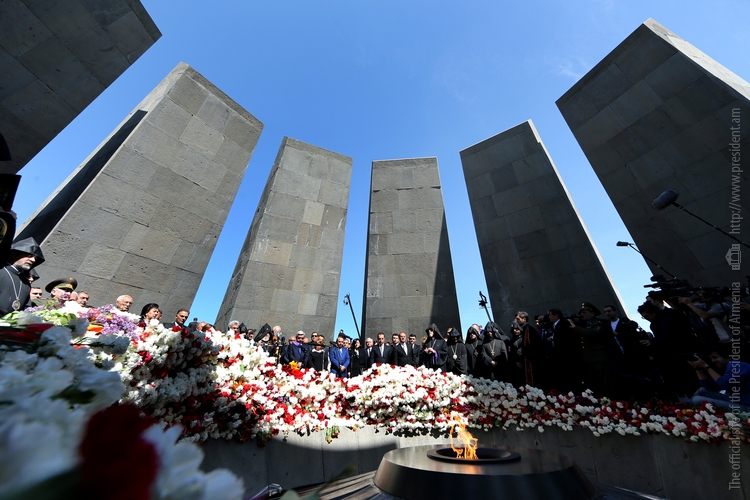 This year’s Genocide Memorial Service, courtesy of the President of Armenia’s Office
This year’s Genocide Memorial Service, courtesy of the President of Armenia’s Office
Holocaust
Answering questions in the Armenian National Assembly on the 30th April, the Armenian Foreign Minister, Edward Nalbandin, stated that Turkey should follow Germany’s response to the Holocaust through “recognition, condemnation and apology”.
Large crowds also gathered outside the Turkish embassy in Washington, D.C. after the Turkish Prime Minister’s initial statement. Many held placards reading “we want justice”, “end Turkish denial” and “Obama honor your pledge” – a reference to the US President’s refusal to recognise Armenian transportation as genocide.
On the 28th April, Turkey’s Foreign Minister, Ahmet Davutoglu, declared that reactions to his Prime Minister’s statement on the 23rd at home and abroad had been “extremely positive” and that a “psychological threshold” had been crossed.
The Foreign Minister added that Prime Minister Erdoan’s message had “reached its target” and that as a result Turks and Armenians would be able to establish dialogue “more easily”. He added that it was “natural” that some would “take a dim view of Turkey’s message”.
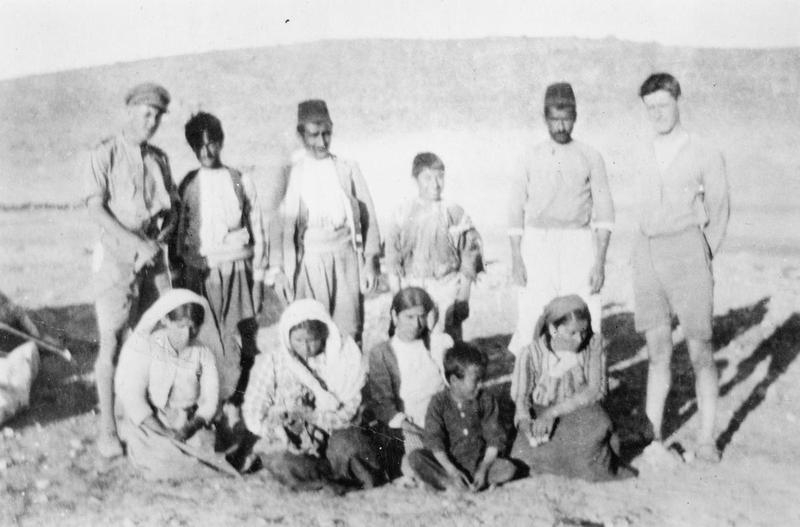 ‘Armenian refugees being fed by British Army Service Corps officers at Abu Lassal’, courtesy of the Imperial War Museum, © IWM, Q 60112
‘Armenian refugees being fed by British Army Service Corps officers at Abu Lassal’, courtesy of the Imperial War Museum, © IWM, Q 60112
“Consensus on history”
In an interview with broadcaster NTV on the 25th April, Turkey’s Foreign Minister described the Prime Minister’s statement as a call “to build a consensus on history”.
In an English language transcript of the interview made available by the Foreign Minister, he said that: “Our Prime Minister extended Turkey’s hand to Armenia to get our minds and hearts closer. If it gets an answer, then we can build a future together. If not, we will go back to the former discourses”.
He also said that “now Turkey has the right to expect Armenians to offer their condolences to Turkey for the murders committed by the ASALA [Armenian Secret Army for the Liberation of Armenia] against Turkish diplomats, to avoid one-sidedness”.
Recognition of the transportations of Armenians as “genocide” by countries such as Canada and France have had diplomatic repercussions. Both saw trade deals with Turkey called off as a result.
More recently, lawmakers in the Australian state of New South Wales were barred from attending Gallipoli commemorations after recognising the “Assyrian, Armenian and Greek Genocides” as the “first modern genocides”.
Ankara condemned the move, which was described as “in no way compatible with historic facts”.
“It is evident that history will not be rewritten by such motions passed with petty political calculations under the influence of ethnic lobbies known for their excesses and prejudices”.
Source: Armenian Government press releases; Turkish Goverment press releases
Posted by: Daniel Barry, Centenary News
